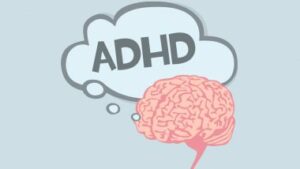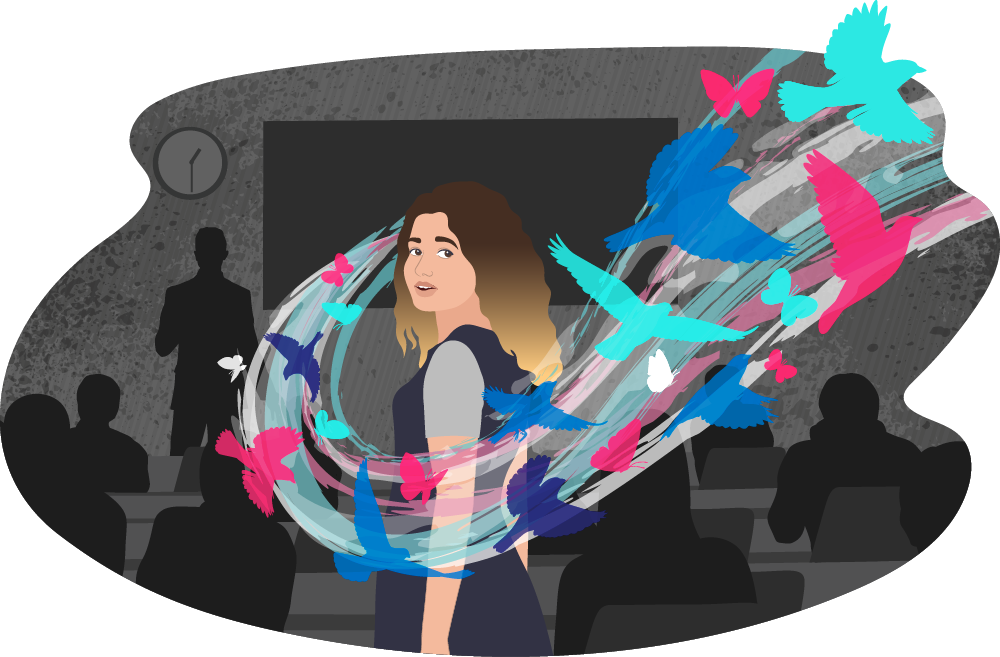Attention deficit/hyperactivity disorder (ADHD) is a neurodevelopmental disorder that affects approximately 5% of school-aged children and up to 30% of adults. The symptoms of ADHD can include difficulty focusing, problems with attention, and impulsiveness. Living with someone who has ADHD can be challenging, but there are ways to make things easier. In this article, we’ll provide you with tips on how to deal with ADHD in your relationship, as well as advice on how to manage your stress levels.
Contents
What Is ADHD?

ADHD is a mental disorder that is characterized by problems with focus, hyperactivity, and impulsiveness. It affects about 5% of children and adults. There are many signs of ADHD, but some of the most common ones include: difficulty staying seated in one place for more than a few minutes, trouble concentrating, being easily distracted, and having trouble completing tasks. If you think that someone you know may have ADHD, it’s important to talk to them about it. There are many ways to live with ADHD, and the best way to find out is to ask your loved ones what works best for them.
How can living with someone with ADHD be challenging?
Living with someone with ADHD can be challenging for a variety of reasons. This includes the fact that ADHD often manifests in disruptive and impulsive behaviors, which can make living together difficult. It can also be difficult to manage expectations and meet everyone’s needs when one person is struggling to stay on schedule, focus, or follow through with tasks. Additionally, individuals with ADHD may have difficulty regulating their emotions, which can lead to conflict and tension in relationships.
While living with someone who has ADHD can be challenging, there are ways to make it easier. For example, it can be helpful to establish clear rules and boundaries early on in the relationship. This way, both parties know what is expected of them and can better manage their own emotions. Additionally, it is important to communicate openly and honestly with one another about how things are going. This allows both parties to work together to address any challenges that arise.
If you are living with someone who has ADHD, remember that you are not alone and there are plenty of resources available to help you get through the tough times.
Tips for Living With Someone With ADHD

These are some of the tips for living with someone with ADHD:
1. Get organized. ADHD can make it difficult to stay on task, especially if your partner is also unorganized. Try setting up a system for tracking your work and home responsibilities, so you both know what needs to be done and when. This way, you can both be more productive and less stressed.
2. Talk about issues. Because of their difficulty focusing, ADHD individuals often don’t notice or understand problems until they’ve become big. Discussing problems before they become too large can help prevent misunderstandings and stress-related arguments.
3. Set ground rules. If you’re struggling to balance life with an ADHD partner, it’s important to set some boundaries. Make sure you know when and how long you can talk on the phone without being disturbed, and establish regular times for spending time together to minimize distractions.
4. Get organized together. One of the biggest challenges for couples coping with ADHD is finding time to work on joint tasks together. Try organizing your shared space in a way that makes it easier for both of you to access the things you need quickly. This way, both of you can stay on top of your jobs and enjoy time together simultaneously.
5. Don’t take it personally. It can be hard for partners of ADHD individuals to understand how their partner’s condition affects them. Remember that ADHD is a real disorder, not a personal flaw. If you find yourself feeling overwhelmed or frustrated, try to talk to your partner about it instead of taking things out on them.
6. Make time for yourself. No one is immune to the challenges of ADHD, but it’s important to make time for yourself to cope. Set aside time each week to do activities that you enjoy, whether that’s going on hikes or reading a book. This will help you relax and focus better when you’re around your partner. There can also be benefits to seeking professional help if you feel like your relationship is struggling. A therapist can help you both understand and cope with ADHD better.
7. Try new things. Sometimes the best way to cope with ADHD is to try something new. This could mean trying a new activity, meeting new people, or changing your routine in some way. When you’re feeling overwhelmed, it can be helpful to take a step back and explore something new. These new things maybe seem daunting at first, but with some effort and patience, they can become fun and fulfil.
8. Give yourself some space. If you’re struggling to cope with ADHD in your relationship, it’s important to give yourself some space. This means taking some time for yourself every day to do something that you enjoy. This could mean going for walks, reading a book, or watching your favorite TV show. When you spend time alone, you’ll be able to relax and focus better when you’re around your partner.
9. Avoid Making Assumptions: Another challenge for couples coping with ADHD is that the partner with ADHD often doesn’t make sense of what’s happening around them. It can be tempting to assume that your partner knows what they’re doing, but this rarely happens. If you feel like you need to step in and take over, try to give your partner space instead. This way, they can work on solving their problems without feeling overwhelmed or unsupported.
10. Communicate. One of the best ways to cope with ADHD is to communicate with your partner. This means talking about problems as they happen, instead of waiting until they become big. When you’re able to talk openly about what’s going on, both of you can work together to find a solution. This communication is key to a healthy relationship with ADHD.
What Can Be Done To Make Your Relationship More Successful?

There is no one-size-fits-all answer to this question, as the best way to live successfully with someone who has ADHD will vary depending on the specific situation and relationship. However, there are a few general tips that can be helpful in any relationship.
First and foremost, be understanding and forgiving of ADHD. It’s not easy to cope with this condition, and often people with ADHD feel like they’re failing because they can’t control their behavior. Remember that ADHD is a biological disorder, not a character flaw. You should also understand that ADHD usually affects multiple areas of a person’s life, not just their ability to focus or pay attention.
Second, try to establish clear boundaries. With ADHD, people can easily become over-extended or overwhelmed. It’s important to set limits on what your partner can and cannot do, and stick to them no matter how difficult it may be. Be patient with them and remind them frequently that you love them despite their ADHD symptoms.
Finally, don’t expect perfection from your partner with ADHD. Just like everyone else, they will make mistakes from time to time. Rather than getting frustrated or angry when these happen, try to understand where your
Conclusion
Living with someone who has ADHD can be difficult, but it doesn’t have to be. There are many ways to navigate this territory successfully and enjoy the relationships you have with your loved ones. There are many resources available, both online and in person, to help you cope with ADHD. Be patient and communicative with your partner and you will be on your way to a healthier relationship.
Hope this article was of help to you! If you are suffering from mental health disorders, you may seek help from Therapy Mantra. We have a team of highly trained and experienced therapists who can provide you with the tools and skills necessary for overcoming mental health disorders. Contact us today to schedule an online therapy or download our free Android or iOS app for more information.


